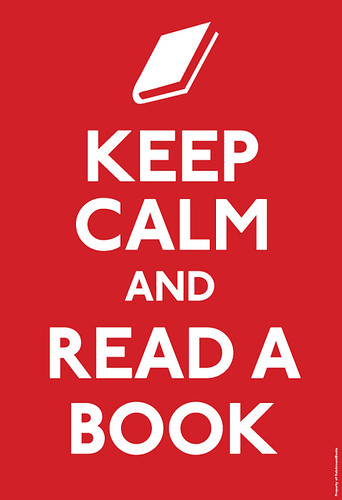(Nothing Halloweenish here; this is a “zombie” post only in the sense of it coming back from the dead.)
I’m about to take a few hours off to visit the NC State Fair (it’s Military Appreciation Day, and I appreciate the military), but I thought I’d reprise an old blog post that I particularly like. It was published six years ago today on the old NCSU-IES blog,* though it had actually appeared on the Beyond Lean blog a little over a week earlier than that:
Because I’ve driven across the country several times, from one Air Force assignment to the next, I sometimes think in terms of the nation as a whole and forget just how big some states are. When I helped the NC State University Industrial Extension Service (IES) conduct the “Manufacturing Makes It Real” tour, covering over 1100 miles in 5 days, I realized very quickly that North Carolina is a pretty big state.
The central message of the tour was that manufacturing — the actual production of durable and consumer goods — matters to all of us, because it is the source of almost everything we have and almost everything we do. As Dr. Terri Helmlinger Ratcliff, IES Executive Director, wrote before the tour, “Manufacturing makes the difference between imagination and reality in ways that make modern life possible.” Invention creates new products, but manufacturing brings them into all our lives.
To spread the message about how much manufacturing matters, we went to every region of North Carolina: the piedmont, the mountains, and along the coast. As we traveled, we held rallies where manufacturers showed off their products and praised their workers. The host sites made the rallies truly “local” events: some had employees sing the National Anthem, some invited Junior ROTC or other school groups to perform, and one invited the local area’s apple orchards to bring some of their products for attendees to sample. Local, State, and even Federal elected officials attended various events, which usually included plant tours to show off the host sites’ capabilities in more detail.
Our convoy included a tractor-trailer with dozens of different “Made in NC” items that showed off the diversity of products made throughout the state. At each rally, people lined up to walk through the trailer to see their handiwork as well as others’. Many people expressed surprise at the variety of products made in the state: “from tortilla chips to microchips,” as IES Deputy Director Dr. David Boulay said.
I like to think the individual rallies were like “county fairs” for manufacturing, and we were pleased at the number of companies that attended, even though we didn’t have blue ribbons to award. And considering the weather we had — record levels of rain along the coast, making us travel on nearly-flooded roads** — we were very fortunate to make it to each stop and hold each rally on time.

The MMIR Tour bus at Scott Health & Safety in Monroe. (NC State University image.)
The most memorable rally for me was held at Scott Health & Safety in Monroe (east of Charlotte). The Monroe Fire Department had set up two ladder trucks and suspended a huge U.S. flag to help the company demonstrate their “Made in the USA” pride. That pride-of-workmanship theme was repeated at every stop, but the Monroe event was special to me because I relied on Scott Air Pak breathing gear when I worked disaster response in the Air Force. Their workmanship can literally mean the difference between life and death in dangerous situations. (I wrote more about the Scott Health & Safety rally on the tour blog***).
All week long, from companies big and small and representing many different industry sectors, we heard stories of continuous improvement through lean and Six Sigma, expanded markets through ISO certification, and risk-taking through entrepreneurial ventures and new produc
Oops. What happened there?
What happened is that IES (now named “Industry Expansion Services” for some reason) destroyed its old blog and that’s all my former co-worker was able to recover. Seriously, the recovered portion they sent me ends right there, in the middle of the word “product.” (I contend that the blog was a historical record of the university and that doing away with it like that violated the rules for retaining official state records, but what do I know?) Thankfully, since this particular entry was cross-posted elsewhere and is still available there, we can include the rest of it as follows:
… new product development. Company leaders admitted to a lot of belt-tightening and uncertainty in the last couple of years, but seemed pleased that people were paying attention to the good work they do.
The tour ended with a final rally at the NC Legislative Building in Raleigh, where NC State Chancellor Randy Woodson symbolically presented the truckload of products to NC Secretary of Commerce Keith Crisco. The speakers at the final rally, along with the companies that sponsored and participated in the “Manufacturing Makes It Real” tour, testified that manufacturing is alive and well in North Carolina. We are all committed to keeping it that way.
It’s hard to believe that was six years ago now! We kept the momentum of the tour going for a few more years through the MMIR Network, but eventually the IES leadership found other interests and higher priorities. I consider that a little sad, but I’m still proud that for a while I was part of celebrating real people who make real things that we use every single day.
And just this week I suggested that an author friend of mine visit the Scott plant in Monroe, which I never would have known about had it not been for the MMIR Tour.
Anyway, if you’re of a mind I hope you’ll take note of something you use and think of the people who worked on producing it for you. And if you’re one of the thousands of people who make things for the rest of us, please accept my gratitude. Thanks for all you do!
___
* I’ve removed all links to the old NCSU-IES blog, since it doesn’t exist anymore. When I clicked on old links to it, they redirected to the College of Engineering page, which I find a bit ridiculous.
** The storms we drove through were pretty intense, though we didn’t mind because we needed the rain to counteract that summer’s drought. At least it wasn’t a full-blown hurricane!
*** I’m surprised that old tour-specific blog is still active, but it was a WordPress blog and not maintained by the University. They may decide to take it down, if they realize it’s out there. But at least for the moment you can find more from the tour, including pictures from most of the sites, at http://mfgmakesitreal.wordpress.com/.



 by
by 


















